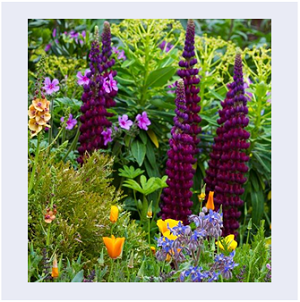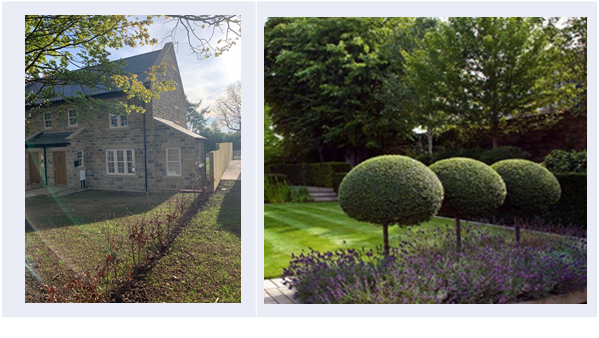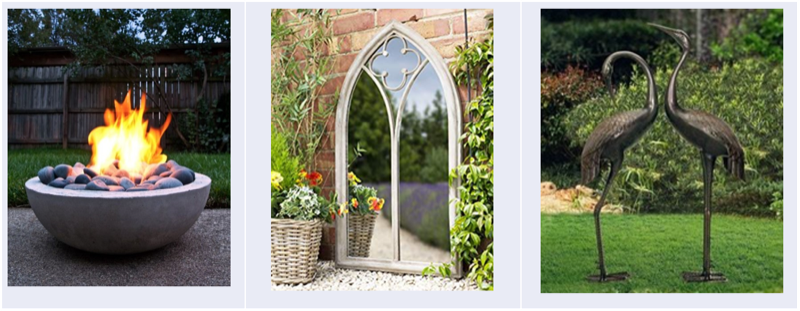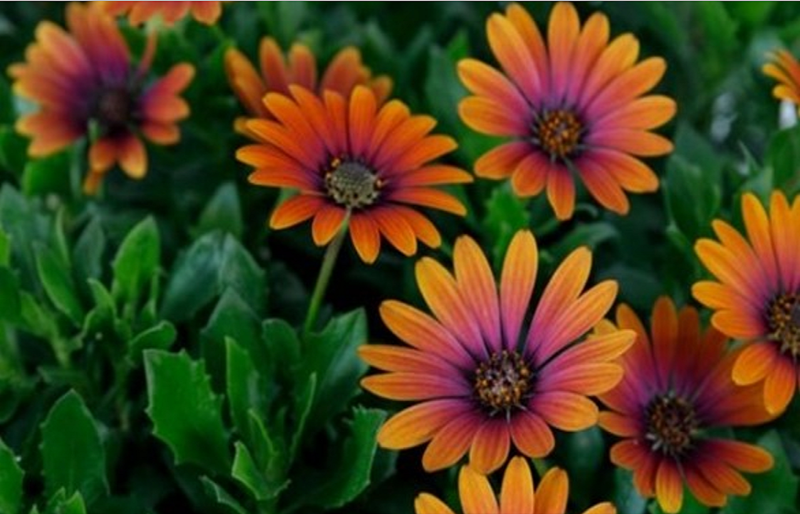Plants
Watering – Simple as it may seem, watering your plants is the most crucial step. With limited sunshine hours during winter, opt to do your watering in the morning over the months of October to February. This gives them time to dry over the course of the day. Conversely, it’s better to do the watering in the evening over the summer months so as to avoid scorching the leaves and stripping essential moisture.
Soil – Making sure your plants have enough soil is vital, soil provides nutrients, protection and filtration as well as oxygen which is trapped among the spaces between the particles in the soil. Try composted bark or all-purpose compost for the borders. Simply add fertiliser around the routes of the border plants which promotes healthy growth. If, however, you are considering potting plants, potting compost is your best option as it provides the optimum texture and moisture retention for growing plants.
Pruning – Pruning (that is, cutting off those parts of the plant that stunt growth) towards the end of the summer season in August to encourage regrowth is also a good habit to form. Deadheading your plants will ensure they flower throughout the summer.
Weeding – Weeding is never fun or glamourous however it is one of the most important tasks. Keeping on top of the weeds is vital to ensure flowers and vegetables perform better in the summer.
Potting Flowers
Drainage – If your pot does not have enough drainage the soil will become too wet and cause the roots of the flower to rot.
Sunlight – Evaluate the light your pot and plants receive, too much or too little light can affect your plant, it’s recommended you research the specific plant and evaluate in tandem with how much sun a certain area of your garden gets
Feed – Feed your plants. Potting soil does not provide enough accessible nutrients therefore the vast majority will need fertiliser added to the soil to ensure the plants stay healthy. Fertilisers contain nutrients that include Nitrogen, Phosphorus and Potassium – the main nutrients required to keeping plants healthy

Hedging
There are various hedging plants that you can buy which not require a lot of maintenance. Hedges give multiple benefits whether it’s to provide a wind break, create privacy or to act as a feature to outline your garden. At V&A Homes we understand our homeowners may want privacy in their garden area and as such plant hedging such as Beech which is also low maintenance. The most popular low maintenance hedges are
- Beech hedging will require minimal maintenance, the leaves will go a lovely green colour in the spring and darker over the summer/ winter months. Grows best in dry soil.
- Yew hedging is a great slow growing hedge. Once settled in the first few months, it does not require a lot of your attention thereafter. If you have a passion for topiary then it lends itself wonderfully for shaping, especially for cloud pruning.

Driveways
Your driveway isn’t just somewhere to park your car it is the focal point of your home. Some of the nicest driveways often make use of the space, shape and size whilst being robust and functional. We opted to gravel the driveways at our recent development in Scotton, Knaresborough being mindful that it does not crack or age regardless of weather conditions. In addition it worked well with the natural feel of the meadow setting.
- Gravel is very easy to lay, the great benefit of using gravel is you can choose the colour and size of the stone enabling you to gain a unique feel to the front of your home.
- Asphalt is another option if your driveway has underlying imperfections on its surface due to the flexibility it offers. A good substitute for concrete. As added benefit is that regular repairs and maintenance work can be taken care of by the homeowner thereby avoiding the need to get a professional in.
- Block paving also makes for a great driveway finish and is popular due to how aesthetically pleasing it is in addition to being highly reliable and durable.

Garden Design
It is fair to say that 2020 has been a year whereby our gardens really have been our saviours. With it’s growing importance, styling your outdoor space will no doubt help you to relax, take stock and slow down. No matter how big or small your garden is there are always some simple adjustments that can be made to help you improve the space:
- Garden Sculptures.
- Gothic stone garden mirrors – for smaller gardens mirrors are great to add light and make your space feel a little bigger.
- Plant stakes.
- Windchimes.
- Firepits can give your garden a warm and cosy feel for the British summer evenings.
- Bird boxes are a great way to attract nature into your garden and also will give you garden an attractive feature.

Author: Ella Waudby, V&A Homes
Subscribe to our newsletter
